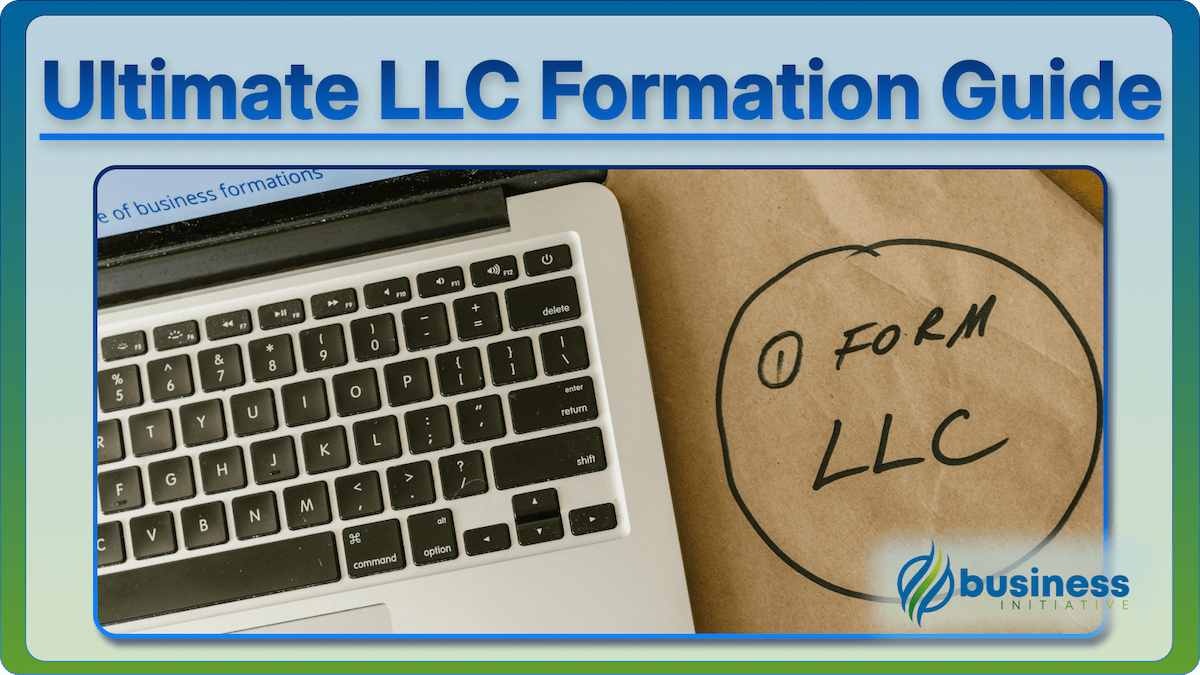You’re an owner or officer.
You have responsibilities.
You need protection.
You need governance practices.
Governance. Policies. Practices. Your protection.
This guide shows you how.
Owner protection. Officer protection. Governance practices. Your compliance.
Read this. Implement practices. Reduce exposure.
 Key Takeaways
Key Takeaways
- Assign clear BOI responsibilities—designate specific individuals responsible for filing, updates, and compliance monitoring
- Establish governance policies—create written policies that define BOI compliance procedures, deadlines, and accountability
- Document decision-making—maintain records of BOI-related decisions, including who made them and why
- Regular compliance reviews—schedule quarterly or annual reviews to assess BOI compliance status and identify any gaps
- Professional oversight—engage legal or compliance professionals to review BOI filings and governance practices
 Table of Contents
Table of Contents

Why Governance Matters
Governance reduces exposure.
What happens without governance:
- Responsibilities are unclear
- Compliance fails
- Exposure increases
- Protection is weak
What happens with governance:
- Responsibilities are clear
- Compliance is maintained
- Exposure is reduced
- Protection is strong
The reality: Governance enables protection.
Assigning Responsibilities
Clarify who does what:
Designate Compliance Officer
What to do:
- Assign specific individual
- Define responsibilities clearly
- Provide authority needed
- Establish reporting structure
Why it matters: Clear designation prevents gaps.
Define Roles
What to define:
- Who files initial BOI
- Who handles updates
- Who monitors compliance
- Who responds to inquiries
Why it matters: Defined roles ensure coverage.
Establish Accountability
What to establish:
- Reporting requirements
- Review processes
- Performance metrics
- Consequences for failures
Why it matters: Accountability ensures compliance.
Pro tip: Assign responsibilities. Compliance officer, defined roles, accountability. See our BOI guide for filing requirements.

Governance Policies
Create written policies:
BOI Compliance Policy
What to include:
- Filing requirements
- Update procedures
- Deadline management
- Compliance monitoring
Why it matters: Policy provides framework.
Ownership Documentation Policy
What to include:
- How ownership is documented
- When updates are required
- Where records are stored
- Who has access
Why it matters: Policy ensures consistency.
Change Management Policy
What to include:
- How ownership changes are handled
- When BOI updates are required
- Who is notified
- How changes are documented
Why it matters: Policy prevents missed updates.
Pro tip: Create policies. BOI compliance, ownership documentation, change management. See our BOI documentation guide for record-keeping.
Documentation Practices
Maintain proper documentation:
Decision Records
What to document:
- BOI-related decisions
- Who made decisions
- When decisions were made
- Rationale for decisions
Why it matters: Records support good faith.
Compliance Records
What to document:
- Filing dates and confirmations
- Update dates and confirmations
- Compliance review dates
- Issues identified and resolved
Why it matters: Records demonstrate compliance.
Communication Records
What to document:
- Internal communications about BOI
- External communications with FinCEN
- Professional guidance received
- Questions asked and answers received
Why it matters: Records show diligence.
Pro tip: Maintain documentation. Decision records, compliance records, communication records. See our BOI documentation guide for documentation practices.

Compliance Reviews
Schedule regular reviews:
Quarterly Reviews
What to review:
- Filing status
- Update requirements
- Ownership changes
- Compliance gaps
Why it matters: Quarterly reviews catch issues early.
Annual Assessments
What to assess:
- Overall compliance status
- Policy effectiveness
- Process improvements
- Training needs
Why it matters: Annual assessments ensure ongoing compliance.
Trigger-Based Reviews
What triggers reviews:
- Ownership changes
- New entity formation
- Regulatory updates
- Compliance issues
Why it matters: Trigger-based reviews address specific events.
Pro tip: Schedule reviews. Quarterly reviews, annual assessments, trigger-based reviews. See our BOI routine guide for compliance habits.
Professional Oversight
Engage professional oversight:
Legal Review
What to review:
- BOI filings before submission
- Governance policies
- Compliance procedures
- Risk exposure
Why it matters: Legal review reduces risk.
Compliance Consultation
What to consult on:
- Filing requirements
- Update obligations
- Best practices
- Risk mitigation
Why it matters: Compliance consultation ensures accuracy.
Ongoing Support
What support to provide:
- Filing assistance
- Update management
- Compliance monitoring
- Issue resolution
Why it matters: Ongoing support maintains compliance.
Pro tip: Engage professionals. Legal review, compliance consultation, ongoing support. See our legal checklist guide for attorney questions.
Your Next Steps
Implement governance. Protect owners and officers. Reduce exposure.
This Week:
- Review this guide
- Assign BOI responsibilities
- Create governance policies
- Establish documentation practices
This Month:
- Schedule compliance reviews
- Engage professional oversight
- Document decisions and compliance
- Train relevant personnel
Going Forward:
- Maintain governance practices
- Conduct regular reviews
- Update policies as needed
- Protect owners and officers
Need help? Check out our BOI filing guide for filing requirements, our BOI documentation guide for record-keeping, our BOI routine guide for compliance habits, and our registered agent guide for business address setup.
Stay informed about business strategies and tools by following us on X (Twitter) and signing up for The Initiative Newsletter.
FAQs - Frequently Asked Questions About Protecting Owners and Officers: Governance Practices That Reduce BOI Exposure

What governance practices help protect owners and officers from BOI compliance exposure?
Assign clear responsibilities, create written BOI policies, maintain thorough documentation, schedule regular compliance reviews, and engage professional oversight.
Learn More...
Five governance layers protect owners and officers from BOI exposure: (1) Responsibility assignment—designate a specific compliance officer with defined authority, establish who files initial BOI reports, who handles updates, who monitors compliance, and who responds to inquiries. (2) Written policies—create BOI compliance policies covering filing requirements, update procedures, deadlines, and ownership documentation standards. (3) Documentation practices—maintain records of all BOI-related decisions, filing dates, compliance reviews, and communications with FinCEN. (4) Regular reviews—schedule quarterly compliance checks and annual assessments to catch gaps early. (5) Professional oversight—engage legal counsel to review filings before submission and compliance consultants to ensure accuracy. Together, these practices create a defense framework showing good faith compliance efforts.
Why should you designate a specific BOI compliance officer instead of sharing the responsibility?
Shared responsibility creates gaps where no one takes ownership. A designated compliance officer ensures one person is accountable for filing, updates, and monitoring.
Learn More...
Without clear designation, BOI compliance often falls through the cracks because everyone assumes someone else is handling it. A designated compliance officer solves this by having one person who is specifically assigned to the role with defined responsibilities, provided with the authority needed to access information and make compliance decisions, given a clear reporting structure so leadership stays informed, and held accountable through review processes and performance metrics. The compliance officer's defined roles include filing the initial BOI report, handling all updates when ownership or company information changes, monitoring ongoing compliance status, and responding to any FinCEN inquiries. This single-point accountability eliminates the gaps that occur when compliance responsibility is loosely shared among multiple people.
What three types of documentation should you maintain to demonstrate BOI compliance good faith?
Decision records documenting who made BOI decisions and why, compliance records showing filing dates and confirmations, and communication records tracking all BOI-related correspondence.
Learn More...
Three documentation categories create a comprehensive compliance record: (1) Decision records—document every BOI-related decision including who made it, when it was made, and the rationale behind it. If beneficial ownership determination was complex, record how you reached your conclusion. These records demonstrate good faith if your decisions are later questioned. (2) Compliance records—track all filing dates with confirmations, update dates with confirmations, compliance review dates, and any issues identified along with how they were resolved. This creates a timeline proving consistent compliance attention. (3) Communication records—preserve all internal communications about BOI, external communications with FinCEN, professional guidance received from attorneys or compliance consultants, and questions asked with answers received. These records show diligence—that you actively sought to understand and comply with requirements rather than ignoring them.
How often should BOI compliance reviews be conducted, and what triggers an additional review?
Conduct quarterly reviews of filing status, annual comprehensive assessments of policy effectiveness, plus immediate reviews when ownership changes or regulations update.
Learn More...
Three review cadences work together: (1) Quarterly reviews examine current filing status, any pending update requirements, whether ownership changes have occurred since the last review, and whether any compliance gaps exist. These catch issues early before they become violations. (2) Annual assessments take a broader view, evaluating overall compliance status, policy effectiveness, process improvement opportunities, and training needs for relevant personnel. (3) Trigger-based reviews are conducted immediately when specific events occur—any ownership change (new investors, departing partners, equity transfers), formation of new entities, regulatory updates or rule changes from FinCEN, or identification of compliance issues. The combination of scheduled and event-driven reviews ensures nothing falls through the cracks and that your organization responds promptly to changes that affect BOI filing obligations.
What should a written BOI compliance policy include?
Filing requirements, update procedures, deadline management, ownership documentation standards, and change management protocols.
Learn More...
A comprehensive BOI compliance policy covers three areas: (1) BOI compliance procedures—filing requirements including what information to report and to whom, update procedures specifying when and how updates must be filed (within 30 days of changes), deadline management systems to track filing windows, and compliance monitoring processes. (2) Ownership documentation—how beneficial ownership is documented and verified, when documentation updates are required, where records are stored securely, and who has authorized access. (3) Change management—how ownership changes (new members, departing partners, equity transfers) trigger BOI updates, who gets notified internally when changes occur, how changes are documented, and what timelines must be met. Having written policies creates a consistent, repeatable process that doesn't depend on any single person's memory and provides evidence of a structured compliance program if the organization is ever audited.
When should you engage legal professionals for BOI compliance oversight, and what should you ask them?
Engage legal review before filing BOI reports, when ownership structures are complex, and when regulatory changes occur. Ask them to review filings, governance policies, and risk exposure.
Learn More...
Legal professional engagement should cover three areas: (1) Legal review—have attorneys review BOI filings before submission to ensure accuracy, review your governance policies for completeness, evaluate your compliance procedures for gaps, and assess your overall risk exposure. This is especially important for initial filings and when ownership structures are complex. (2) Compliance consultation—consult professionals about specific filing requirements when you're unsure, update obligations when ownership changes are complex, industry best practices for BOI compliance, and risk mitigation strategies specific to your entity structure. (3) Ongoing support—establish a relationship for ongoing filing assistance when questions arise, update management during ownership transitions, compliance monitoring to supplement your internal processes, and issue resolution when problems are identified. The cost of professional oversight is minimal compared to the penalties for non-compliance—which can reach $500 per day—and creates an additional layer of protection for owners and officers.
Sources & Additional Information
This guide provides general information about BOI governance practices and owner/officer protection. Your specific situation may require different considerations.
For BOI filing, see our BOI Filing Guide.
For BOI documentation, see our BOI Documentation Guide.
For BOI routine, see our BOI Routine Guide.
For registered agent services, see our Registered Agent Guide.
Consult with professionals for advice specific to your situation.


